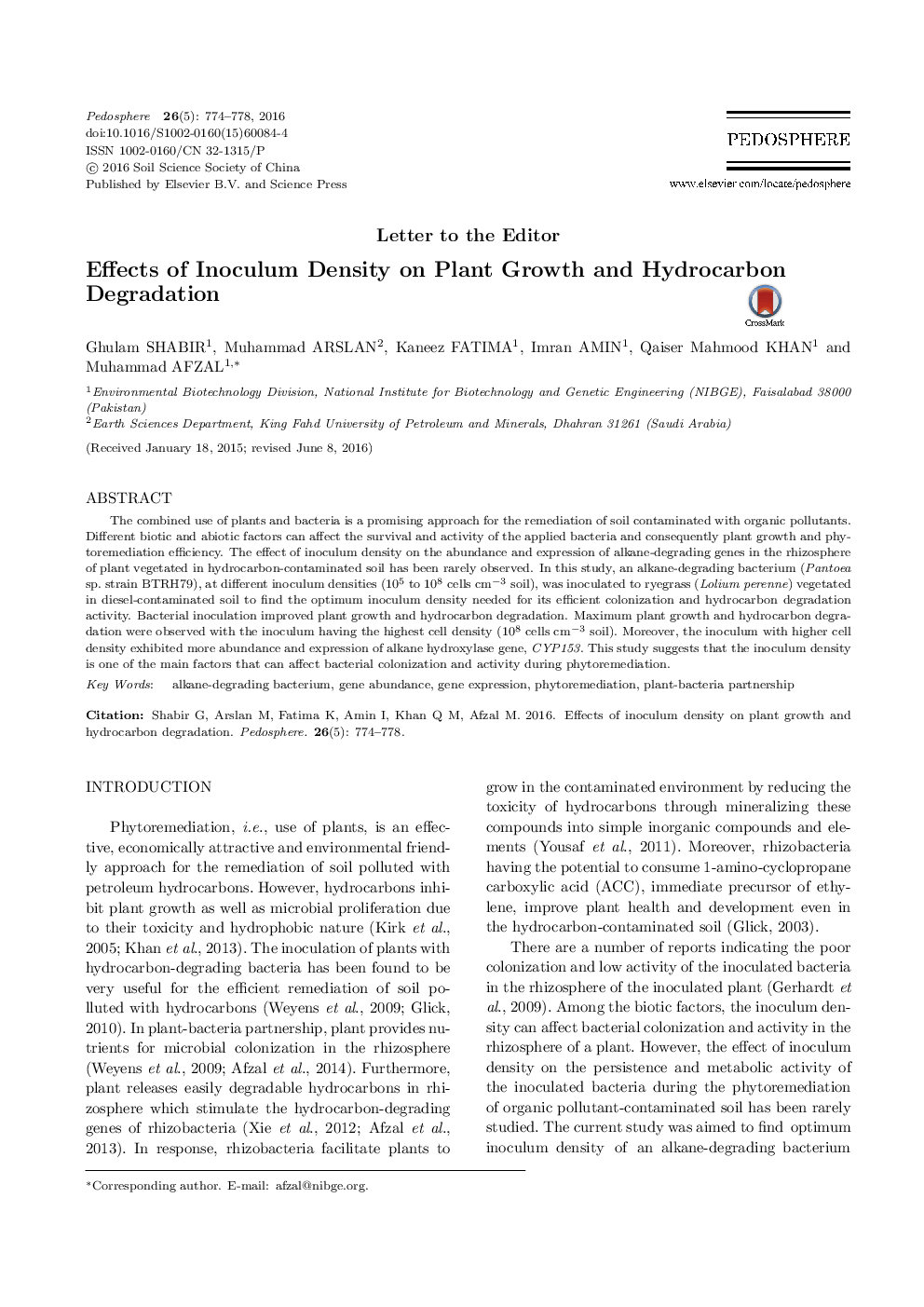| کد مقاله | کد نشریه | سال انتشار | مقاله انگلیسی | نسخه تمام متن |
|---|---|---|---|---|
| 4581172 | 1333685 | 2016 | 5 صفحه PDF | دانلود رایگان |
The combined use of plants and bacteria is a promising approach for the remediation of soil contaminated with organic pollutants. Different biotic and abiotic factors can affect the survival and activity of the applied bacteria and consequently plant growth and phytoremediation efficiency. The effect of inoculum density on the abundance and expression of alkane-degrading genes in the rhizosphere of plant vegetated in hydrocarbon-contaminated soil has been rarely observed. In this study, an alkane-degrading bacterium (Pantoea sp. strain BTRH79), at different inoculum densities (105 to 108 cells cm−3 soil), was inoculated to ryegrass (Lolium perenne) vegetated in diesel-contaminated soil to find the optimum inoculum density needed for its efficient colonization and hydrocarbon degradation activity. Bacterial inoculation improved plant growth and hydrocarbon degradation. Maximum plant growth and hydrocarbon degradation were observed with the inoculum having the highest cell density (108 cells cm−3 soil). Moreover, the inoculum with higher cell density exhibited more abundance and expression of alkane hydroxylase gene, CYP153. This study suggests that the inoculum density is one of the main factors that can affect bacterial colonization and activity during phytoremediation.
Journal: Pedosphere - Volume 26, Issue 5, October 2016, Pages 774–778
